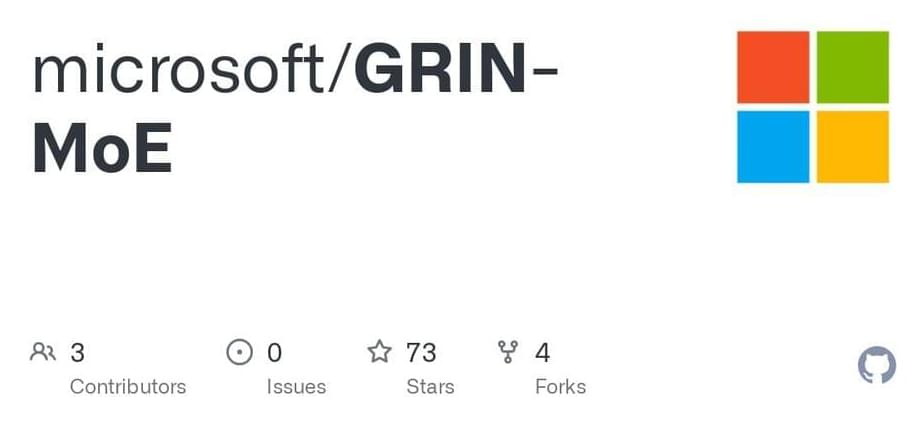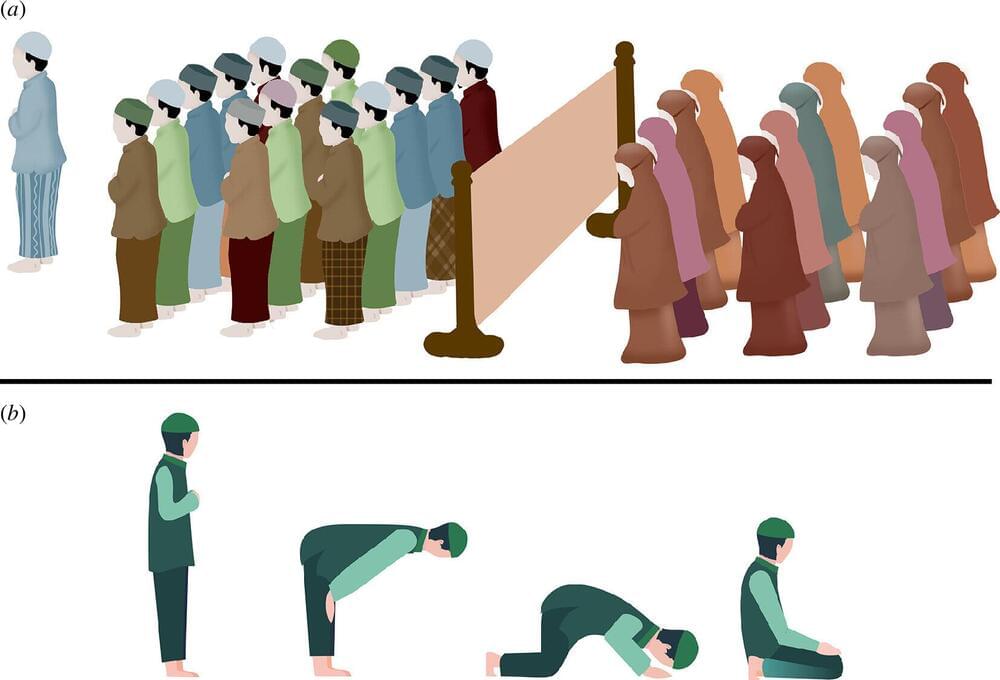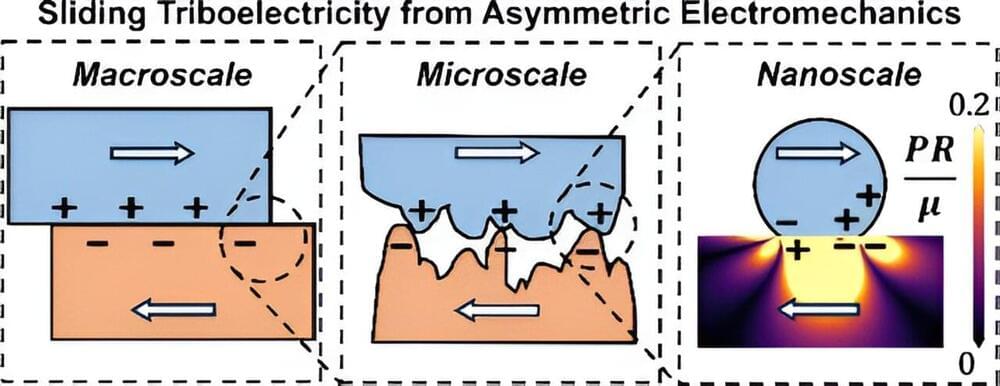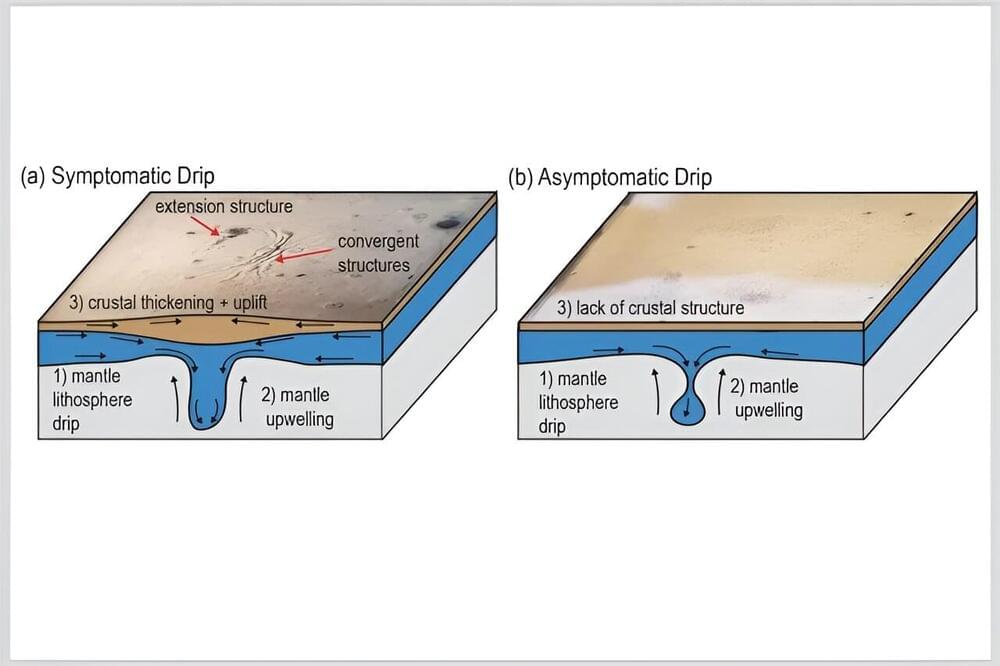Support us! https://www.patreon.com/mlstMLST Discord: https://discord.gg/aNPkGUQtc5Michael Levin is a Distinguished Professor in the Biology department at Tu…
Get the latest international news and world events from around the world.

“Third state” of existence beyond life and death confirmed by study
In science fiction movies like Frankenstein and Re-Animator, human bodies are revived, existing in a strange state between life and death. While this may seem like pure fantasy, a recent study suggests that a “third state” of existence might actually be present in modern biology.
According to the researchers, this third state occurs when the cells of a dead organism continue to function after its death, sometimes gaining new capabilities they never had while the organism was alive.
Amazingly, if further experiments on cells from dead animals — including humans — prove this ability, it could even challenge the definition of legal death.

Microsoft/GRIN-MoE
With only 6.6B activate parameters, GRIN MoE achieves exceptionally good performance across a diverse set of tasks, particularly in coding and mathematics tasks.
Microsoft releases GRIN😁 MoE
GRadient-INformed MoE
Demo: https://huggingface.co/spaces/GRIN-MoE-Demo/GRIN-MoE model: https://huggingface.co/microsoft/GRIN-MoE github:
With only 6.6B activate parameters, GRIN MoE achieves exceptionally good performance across a…
Contribute to microsoft/GRIN-MoE development by creating an account on GitHub.
Assessing China’s AI development and forecasting its future tech priorities
SUBJECT: Assessing China’s current AI development and forecasting its future technology priorities.
In July 2024, the Atlantic Council Global China Hub (AC GCH) and the Special Competitive Studies Project (SCSP) convened experts and policymakers in the second of a two-part private workshop series to gather insights into China’s technology priorities today and in the future. Participants discussed Beijing’s posture on artificial intelligence (AI) development and deployment today, including the hurdles China’s AI industry faces amid US-China technology competition, as well as Beijing’s policy priorities over the next decade. This memo summarizes insights gathered during the workshop.
In today’s strategic competition between the United States and China, both countries seek to bolster their nations’ innovation ecosystems and enhance their ability to develop and deploy breakthrough technologies. The United States is committed to maintaining US technological leadership in the long term, as Secretary of Commerce Gina Raimondo demonstrated at the Reagan National Defense Forum in December 2023, when she stated that “America leads the world in artificial intelligence. America leads the world in advanced semiconductor design, period… e’re a couple years ahead of China. No way are we going to let them catch up. We cannot let them catch up.”

Deriving Fundamental Constants from Three-Beam Collisions
A long-standing prediction of quantum electrodynamics is that high-energy photons can scatter off each other. However, this process has yet to be observed because dedicated experiments have an extremely low signal-to-noise ratio. Now Alexander Macleod at the Extreme Light Infrastructure, Czech Republic, and Ben King at the University of Plymouth, UK, have designed an experiment that could achieve a high-enough signal-to-noise ratio to measure the phenomenon [1]. Researchers could use such measurements to derive the values of fundamental constants in quantum electrodynamics and then set constraints on various extensions to the standard model of particle physics.
Conventionally, scientists have looked for evidence of photon–photon scattering by colliding pairs of laser beams. Macleod and King instead propose colliding three laser beams: an x-ray beam and two high-power optical beams. The two optical beams provide the photons that scatter off each other, and the x-ray beam imparts a momentum kick to the scattered photons. This kick alters the trajectory of the photons and spatially separates them from much of the experimental background. As a result, in the detection region, the signal-to-noise ratio is higher than that of two-beam setups.
Macleod and King consider how their setup could be realized in two currently existing research facilities: the European X-Ray Free-Electron Laser facility in Germany, as part of the planned BIREF@HIBEF experiment, and the SPring-8 Angstrom Compact Free Electron Laser in Japan. They then show how the technology used in these facilities should be sufficient to measure photon–photon scattering. Macleod says that such a demonstration would be important for researchers working on “high-power lasers, strong-field physics, and quantum electrodynamics.”


Signatures of Gravitational Atoms from Black Hole Mergers
Gravitational-wave signals from black hole mergers could reveal the presence of “gravitational atoms”—black holes surrounded by clouds of axions or other light bosons.
Subrahmanyan Chandrasekhar famously stated that black holes are “the most perfect macroscopic objects there are in the Universe: The only elements in their construction are our concepts of space and time.” His observation relates to the fact that astrophysical black holes, as described by the Kerr spacetime, can be characterized by just two parameters: mass and spin. However, things might get more complex. Theorists have predicted that if a bosonic field interacts with a Kerr black hole, perturbations in the field can grow to form a cloud around the black hole, creating a “gravitational atom,” in which the bosons surrounding the black hole behave somewhat like the electrons surrounding an atomic nucleus [1] (Fig. 1). What’s more, if such a gravitational atom is part of a binary involving a second black hole, excitations and ionization processes akin to those occurring in hydrogen atoms may affect how the black hole binary evolves.


